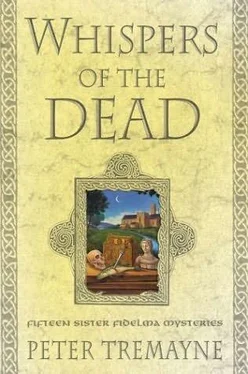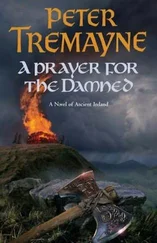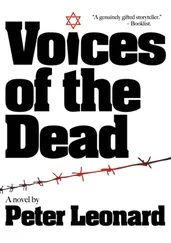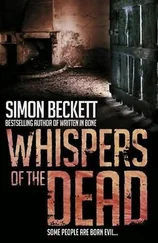Peter Tremayne - Whispers of the Dead
Здесь есть возможность читать онлайн «Peter Tremayne - Whispers of the Dead» весь текст электронной книги совершенно бесплатно (целиком полную версию без сокращений). В некоторых случаях можно слушать аудио, скачать через торрент в формате fb2 и присутствует краткое содержание. Жанр: Исторический детектив, на английском языке. Описание произведения, (предисловие) а так же отзывы посетителей доступны на портале библиотеки ЛибКат.
- Название:Whispers of the Dead
- Автор:
- Жанр:
- Год:неизвестен
- ISBN:нет данных
- Рейтинг книги:4 / 5. Голосов: 1
-
Избранное:Добавить в избранное
- Отзывы:
-
Ваша оценка:
- 80
- 1
- 2
- 3
- 4
- 5
Whispers of the Dead: краткое содержание, описание и аннотация
Предлагаем к чтению аннотацию, описание, краткое содержание или предисловие (зависит от того, что написал сам автор книги «Whispers of the Dead»). Если вы не нашли необходимую информацию о книге — напишите в комментариях, мы постараемся отыскать её.
Whispers of the Dead — читать онлайн бесплатно полную книгу (весь текст) целиком
Ниже представлен текст книги, разбитый по страницам. Система сохранения места последней прочитанной страницы, позволяет с удобством читать онлайн бесплатно книгу «Whispers of the Dead», без необходимости каждый раз заново искать на чём Вы остановились. Поставьте закладку, и сможете в любой момент перейти на страницу, на которой закончили чтение.
Интервал:
Закладка:
The main township was set at a river bend where the river of the plain, Maigue, and the little crooked river, Camoge, intersected at a spot called Cromadh, or the crooked ford. At this juncture stood the Wood of Eóghan, rising on a hill surmounted by the ancient fortress of the chief, Díomsach the Proud. Fidelma had discovered that the man’s name had not been given lightly for he was, indeed, a proud man and conscious of his lineage from the ruling family of the kingdom, albeit a branch that had long separated from the Eóghanacht of Cashel. The Eóghanacht Áine were one of the seven main branches of the family establishing their rule over Muman. The Áine claimed precedence as second to the senior branch at Cashel. They were proud and arrogant.
But the area in which Díomsach claimed his power spread into this fertile valley which the Uí Fidgente also claimed as their territory. The Uí Fidgente were just as stubborn and proud. Many times had they risen up in rebellion against Cashel itself, even asserting a claim to the kingship. The continuing dispute as to who should rule in Cromadh made the presence of any dálaigh, let alone the sister of the king of Cashel, a subject of great tension. At all such courts held at Cromadh, the local chief of the Uí Fidgente claimed it was his right to attend and sit with the chief of the Tuatha Cromadh. It was a demand that was reluctantly agreed upon.
Fidelma now glanced at the haughty face of Díomsach as he sat on her right-hand side in his great hall. She had heard a number of complaints that morning, none of them major. Then she turned to the equally stony face of Conrí, local chieftain of the Uí Fidgente. Both kept silent.
“Is that all the submissions and statements?” she asked again, more sharply.
“I see no more supplicants,” replied Conrí of the Uí Fidgente in a bored voice.
Brother Colla, the scriptor who was taking a record of the proceedings, coughed nervously, looking toward Fidelma.
“You have something to say, Brother Colla?” she inquired.
“There is one other person who demands a hearing,” he said quietly. Then he hesitated.
Sister Fidelma looked at him with curiosity.
“Then why isn’t this person brought before me?”
The scriptor shuffled his feet awkwardly.
“He has been detained outside by Fallach, the. .”
Díomsach’s brows came together sharply.
“Fallach will doubtless have a good reason,” he snapped, adding quickly to Fidelma, “he is my chief of warriors. Who is this man apprehended by Fallach?”
“Lord, it is the farmer Febrat.”
To Sister Fidelma’s surprise, Díomsach burst out chuckling.
“Febrat? That half-wit? Then there is no more to be said. Our hearing is ended and we may retire for the feasting and entertainment.”
He made to rise but Sister Fidelma said quietly, “I am afraid that it is I who must say when my court may disperse, Díomsach. I would know more about this man Febrat and why you would exclude him from the right of petition to the courts of this land.”
Díomsach reseated himself and looked momentarily uncomfortable.
“The man is mad, Fidelma of Cashel.”
Sister Fidelma smiled cynically.
“Are you saying that he is adjudged insane and without responsibility in law?”
The chief shook his head but was silent.
“I am still, then, awaiting an answer.”
“I am also intrigued,” Conrí of the Uí Fidgente added, not disguising his delight at Díomsach’s discomfort.
Díomsach sighed softly.
“Febrat may not be legally insane but I think we are approaching a point where he must be adjudged as such. Febrat is a farmer. His farmstead is across the river, in the valley. It is the farthest farmstead in my territory bordering on the lands of my good friend, Conrí.” Díomsach inclined the upper half of his body toward the Uí Fidgente chief. It was an ironic gesture of deference, which was returned in kind by Conrí.
“I know the area,” Conrí confirmed with a polite smile.
“Then know this,” went on Díomsach. “Twice in the last two weeks he has come to my fortress claiming that the Uí Fidgente were raiding his farmstead.”
The smile vanished from Conrí’s lips.
“That is a lie!” he snapped. “There have been no such raids.”
“Nevertheless, we were not initially surprised when Febrat came here with this story,” Díomsach went on grimly. “It cannot be said that the Uí Fidgente are the most trustworthy neighbors. .”
Fidelma raised a hand as Conrí clapped a hand to his empty sword sheath, half rising from his seat. It was a firm rule that no weapons could be carried into a feasting hall or into a Brehon’s court.
“Sit down, Conrí, and calm yourself,” she admonished sharply. “Let us hear out this story. Did you investigate Febrat’s complaint?” she turned back to ask of Díomsach.
The chief nodded swiftly.
“Of course. Fallach and some of our warriors rode out and found nothing. Not broken blades of grass, a missing sheep, nor dog in frenzied mood. There was no sign of any movement of horses having ridden around the farmstead. Fallach questioned one or two people, including Febrat’s own wife, Cara, and she dismissed the idea as a figment of his imagination. Not being able to discover anything, Fallach returned.”
“Then there had been no raid?” asked Fidelma.
“Of course, there had not,” snapped Conrí. “My men would not raid a farmstead without my knowing of it, and they would know their punishment would be that much more harsh should I have discovered it. This man Febrat was indulging in liquor or was a liar.”
Díomsach nodded slowly.
“In this we find agreement, my friend. But then, two days afterwards, Febrat came to me with the same tale. He had the same sincerity and anguish as he had the first time he reported such an event. He named his neighbor, claiming this farmer was the man leading the raid. We had to take him seriously and so I accompanied Fallach and some warriors to investigate again only to find that once more there was nothing to justify his complaint.”
Sister Fidelma sat with raised eyebrows.
“He came twice to you claiming that his farmstead was being raided and each time you found nothing? Did you question his wife and did you also question the man whom he charged led the raid?”
Díomsach nodded quickly.
“We did. The man that he claimed led the raid was a farmer named Faramund. He was aghast at the accusation, and as we found nothing, nothing further was done.”
“And what did Febrat’s wife say? What did you say her name was? Cara?”
“Cara said that she thought her husband was imagining such things for she knew nothing.”
“What did Febrat say to this?”
“He was trying to persuade his wife that it had happened.”
“But if she was there, and if it happened, she would know,” Fidelma pointed out. “How could he persuade her otherwise?”
“’That’s just it. On both occasions Febrat’s wife was away that night. I think she was staying with her mother.”
“On both occasions?” pressed Fidelma.
Díomsach nodded: “That is the sum total of it, Fidelma of Cashel.”
“Has the man a history of instability?”
“I do not know,” Díomsach replied.
“And what does his wife say about this imagining?”
The chief shrugged.
“Only that perhaps her husband was working too hard or drinking too much.”
Conrí nodded in grim satisfaction.
“So long as the good name of the Uí Fidgente has been cleared on this matter, I care not about the man.”
“But he is here and wishes to make another supplication,” Fidelma pointed out.
“Why?”
There was a silence.
“Maybe he wishes to test our wits again,” Díomsach replied. “Or he is truly mad and we must bring in a physician to judge him.”
Читать дальшеИнтервал:
Закладка:
Похожие книги на «Whispers of the Dead»
Представляем Вашему вниманию похожие книги на «Whispers of the Dead» списком для выбора. Мы отобрали схожую по названию и смыслу литературу в надежде предоставить читателям больше вариантов отыскать новые, интересные, ещё непрочитанные произведения.
Обсуждение, отзывы о книге «Whispers of the Dead» и просто собственные мнения читателей. Оставьте ваши комментарии, напишите, что Вы думаете о произведении, его смысле или главных героях. Укажите что конкретно понравилось, а что нет, и почему Вы так считаете.












